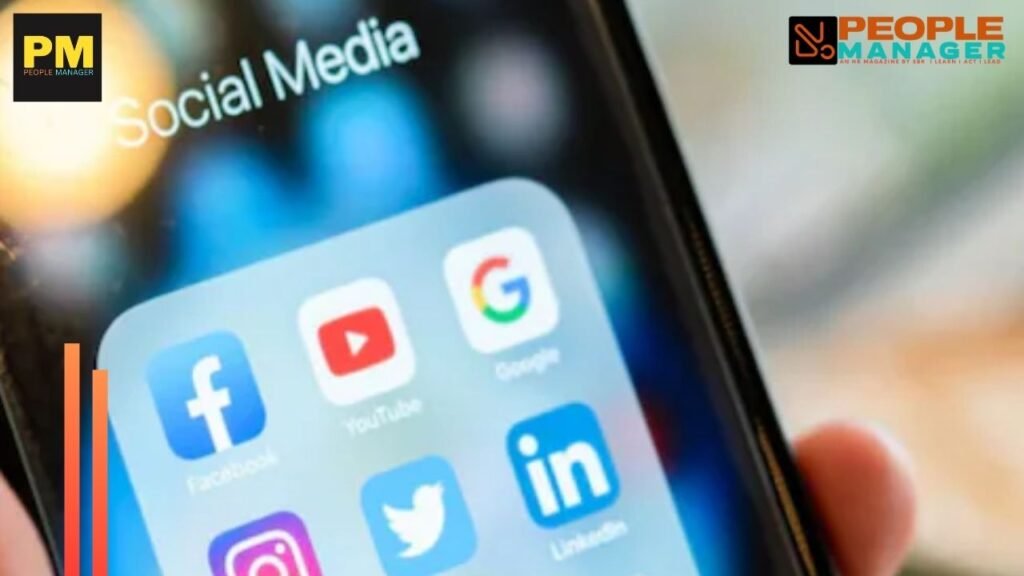How much Good and Bad: HR Issues Warning To Employee For Using Instagram, Netflix At Work
The using of social media during office hours is not ethical, But can be complex and often depends on specific workplace policies and the nature of the work.

In a recent incident that has sparked a flurry of online reactions, an employee was issued a formal warning by their company’s Human Resources (HR) department for misusing company resources during work hours. The employee was found to be using various online platforms such as Instagram, Netflix, and the shopping website Ajio, which are unrelated to their job responsibilities. The incident was brought to light by a LinkedIn user who shared the details, revealing that their friend was the employee in question.
The employee was not only caught using these platforms but was also found to be spending time on job-searching websites like Naukri. The HR department issued an official notice via email, addressing the employee’s excessive use of social media during work hours. The notice specifically mentioned an instance where the employee was caught watching interviews with Bollywood actor Babil Khan.
The LinkedIn user shared a screenshot of the warning issued by the HR representative. The warning read, “It has come to our attention that you are utilizing the company’s time, electricity, and internet to visit websites unrelated to your job responsibilities, specifically websites such as Instagram, Netflix, Naukri and also you spent 6 hours on AJIO last Friday, 31st May. Engaging in personal activities during working hours does not align with our expectations. Please remember, we already gave you a casual warning last week when you were caught watching Babil Khan interviews while on duty.”
The warning also addressed another issue. It stated, “Many of your colleagues have also reported that you and Shreya carry coffee pouches, sugar sachets, Maggi, forks, and disposable plates from the pantry for personal use. Please note, that stealing products from office property is strictly prohibited.”
The post on LinkedIn has since sparked mixed reactions. Some users believe that the issue should be resolved without causing trouble, while others criticized the LinkedIn user for publicly highlighting their friend’s wrongdoing without permission. One user pointed out, “You took the time to hide the HR’s name but didn’t bother doing that for your friend! I’d never want such a friend.” Another shared, “You are making your friend known for her wrongdoing. I am not sure if you obtained permission before publicizing her on a professional platform.”
Despite the criticism, some users saw the situation as an opportunity for the employee to reassess their work-life balance. “That’s a tough situation. It’s good that they communicated their concerns clearly. Maybe it’s a chance to revisit how to balance personal time and work? Hope it gets sorted out smoothly,” a comment read.
The incident has also sparked discussions about company culture, with one user remarking, “The irony of ‘we are a family’ culture.” Since the post was shared online, it has gone viral and garnered over 400 reactions. This incident serves as a reminder of the importance of maintaining professional conduct in the workplace and using company resources responsibly.
How ethically good or bad is surfing social media and shopping platforms during work hours?
The Ethics of Using Social Media During Office Hours
The ethics of using social media during office hours can be difficult, and it frequently depends on unique company policies and the nature of the job. Here are some important considerations:
1. Difference Between Personal and Professional Use: It is critical to distinguish between personal and professional uses of social media. While professional use might be part of one’s employment responsibilities, personal use should not interfere with work obligations.
2. Productivity Concerns: Excessive personal usage of social media during working hours can result in a loss of productivity. According to estimates, personal activities account for approximately 32% of the total time spent on social media during work hours.
3. Confidentiality and disinformation: Extensive usage of social media may result in the loss of confidential information, defamation, and disinformation.
4. Company Policies: Many businesses have social media policies in place to help employees use the platform appropriately during work hours. These policies frequently emphasize respect, truthfulness, and fiscal prudence.
Impact of Using Social Media During Office Hours
1. Positive Impact: Social media can help with staff recruitment, brand recognition, and workplace relationships. It can also provide staff with a mental break, which increases productivity and morale.
2. Negative Impact: On the flip side, using social media during work hours can hinder job performance and possibly harm employee retention. Employees who use social media for work are more likely to be exposed to new employment prospects and have greater profiles among recruiters, making them possible targets for poaching.
In conclusion, while social media can have both beneficial and negative effects on the workplace, its ethical use is heavily reliant on human responsibility and adherence to organizational standards. Organizations must create clear criteria to guarantee that social media use promotes workplace productivity and ethics, rather than detracting from them.
Stay tuned, to PropleManager.co.in for further updates on the evolving workplace paradigm.
Value our content… contribute towards our growth. Even a small contribution per month would be of great help to us. Since our establishment, we have been serving the industry through daily news and updates.
Our content is free for all, and we plan to keep it that way
Support the People Manager. Pay Here
- SHe-Box Portal Pushes Companies to Take Workplace Harassment Complaints Seriously: 2025 Report - February 16, 2026
- India’s Labour Codes Are Redrawing the Hiring Map- Tier III & IV Cities Emerge as the New Growth Engines: Report - February 11, 2026
- Girish Ramadurgam on Talent-Fitment” Problem: How to resolve the skill mismatch - January 19, 2026








